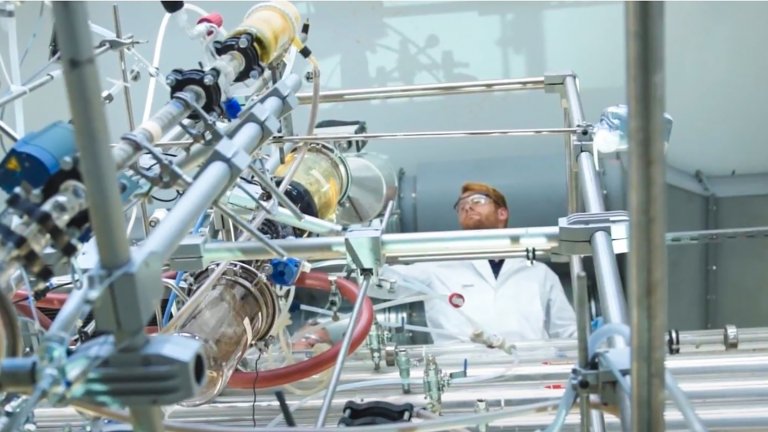
Biopolymers – social reasons for the raw materials revolution
Obtaining and processing plastics from nature and thereby changing the way people live and work in Brandenburg—far from being a distant future utopia, this is already reality at some regional companies.
Biopolymers – the raw materials revolution as a social driving force
Obtaining and processing plastics from nature and thereby changing the way people live and work in Brandenburg—far from being a distant future utopia, this is already reality at some regional companies. They obtain biopolymers mainly from agricultural waste products, such as starch, protein and carbohydrates. However, while the production and processing of biopolymers is currently still the work of pioneers, research into new production processes is constantly progressing and more and more companies have started serial productions of articles made out of biopolymers. And they do it for a good reason: a raw materials revolution is unavoidable in view of the finite amount of fossil fuels available and increasing environmental pollution. Alongside economic and ecological advantages, the use of biopolymers also offers great social opportunities—especially in Brandenburg.
Biopolymers: the region’s great asset
The production and use of biopolymers in Brandenburg harbour a great potential. New, quality jobs can be created in locations that are otherwise rather unappealing, which, in turn, could halt the current migration trend and encourage people to stay in the region. Brandenburg has all it needs to become one of the leading federal states when it comes to researching and producing bioplastics. On the one hand, the state has a very good scientific infrastructure consisting of higher learning institutions and research institutes, and, on the other, Brandenburg has extremely vast areas of land that can be used for farming. Available land and water destine the region to become a future location for biopolymers.
Short supply chains and building up consumer confidence
Processing companies, such as injection moulding companies, already exist in the region. The regional production of bioplastics considerably shortens supply chains—from the acquisition of resources to the end product. Every step of the production process can take place in Brandenburg. This streamlining of processes not only shortens distances, but also gives processors more control over the ingredients they use, which, in turn, builds up confidence, and not only that of the production companies Products made out of biopolymers improve the end consumers’ perception of the product and can thereby spur a significant increase in sales.
Biopolymers: taking on the responsibility for future generations
According to estimates, there is already up to 150 million tons of plastic waste in the seas and oceans. Conventional plastics are almost never completely biodegradable and pose an acute threat to the environment, animals and ultimately humans. Conventional nappies mainly consist of petroleum and are not compostable. In addition to raising health concerns, this example also highlights the urgent need for alternatives to conventional plastic products. Comparable products made out of biopolymers are already on the market and offer entirely compostable alternatives. For example, bioplastic nappies with an absorbent granulate made out of potato starch and cellulose from sustainably managed forests are available. Such pioneering products will change the lives of future generations and lead to the necessary raw materials revolution that will free the industry from fossil fuels and stop the growth rate of landfills worldwide.